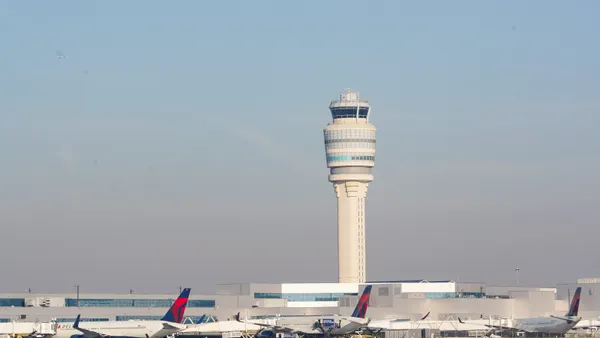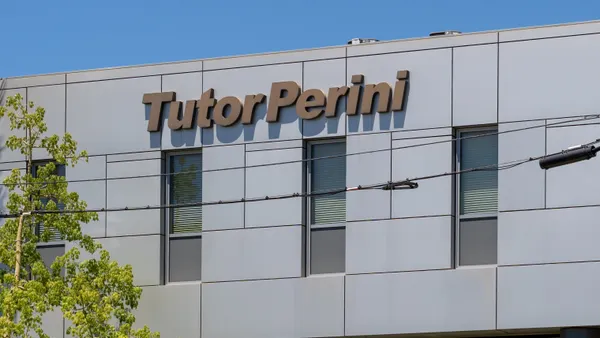Dive Brief:
- A Forbes Insights study, conducted in conjunction with the Commonwealth Bank of Australia, has determined that faster permitting and regulatory approvals, along with collaboration between the public and private sectors, are key to carrying out a successful program of infrastructure investment, according to Forbes.
- Other significant takeaways from the study: 84% of respondents said poor-quality infrastructure excessively harms the lower and middle classes; 68% responded that the federal government needs to a better job of "selling" the benefits of and importance of improved infrastructure; 64% of survey participants believe that the U.S. is under-investing in infrastructure; 49% believe that the federal government's goal of $1 trillion of infrastructure investments will not address the nation's needs.
- The majority of the study's participants — 200 senior executives and government officials — responded that taxpayers view infrastructure spending as "wasteful" and that they are unwilling to pay for improvements, 72% and 71% respectively.
Dive Insight:
Two recent polls contradict study results that indicate the public is unwilling to pay for infrastructure improvements. It could be that the Forbes respondents were imagining the public's reaction to a program that has little oversight or focused on projects that had little impact on most taxpayers.
A survey Bloomberg published in July revealed that more than half of Americans would back a federal gas-tax hike as long as they could see better road quality locally. An HNTB poll found similar results — that 75% of Americans would pay higher taxes and tolls to finance an infrastructure program.
But there still remains among some lawmakers the perception that the American public doesn't want to pay for better roads and bridges, as evidenced by Senate Minority Leader Chuck Schumer (D-NY) and his opposition to the Trump administration's reported plan to raise the federal gas tax by seven cents. The federal gas tax has not been increased since 1993 but is the funding source for the Highway Trust Fund (HTF), which the Congressional Budget Office has said will go broke in the next 10 years. The HTF allocated money to the states to help pay for their surface transportation infrastructure projects.
If the White House can't secure the support it needs to raise the gas tax, it could force the administration to seek partnerships with the private sector, a move that is also sure to meet with resistance from Democrats, who support funding a proposed $1 trillion infrastructure program with direct federal spending.












